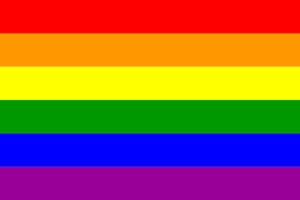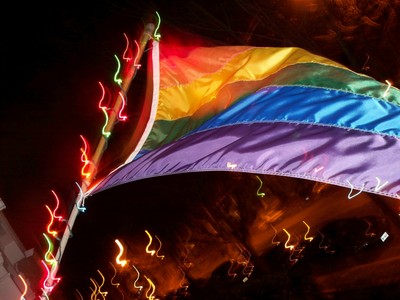 Now that it’s past, I thought it would be good to do a review of yesterday’s synchroblog event. It was an excellent experience and overall, I felt it went quite well. Wendy and her sponsors did a fantastic job putting it all together and the participants wrote some wonderful posts, some of which I will highlight in a moment.
Now that it’s past, I thought it would be good to do a review of yesterday’s synchroblog event. It was an excellent experience and overall, I felt it went quite well. Wendy and her sponsors did a fantastic job putting it all together and the participants wrote some wonderful posts, some of which I will highlight in a moment.
The one thing I was somewhat disappointed in was the fact that despite the efforts of a couple of us (including Wendy), the event seemed primarily geared towards Christians. As far as I know, Christine Bakke, YewTree, and I were the only three non-Christians who participated. This is probably due to a number of reasons. For one, those who sponsored this event were Christian and therefore had the most Christian contacts. Then there’s also the fact that it’s much harder to convince a non-Christian to participate in an event to encourage Christians and gay people to talk to one another. On the whole, we non-Christians probably don’t see as big a need for such conversation.
More troubling, however, is that I did feel there was a certain undercurrent even among many of the participating bloggers that this was about gay and straight Christians talking with each other. I saw more than one post in which the sentiment seemed to be that the foundation for such conversation was the fact that those involved were all “brothers and sisters in Christ.” While this is a fine sentiment and I’m glad that some people were able to find that common ground, that doesn’t extend the conversation to the rest of the gay community — those of us who don’t consider ourselves “brothers and sisters in Christ.” So perhaps it may be a while longer before the entire gay community will find a welcome in the greater community.
Having said that, I wish to be clear that I don’t mean to be too critical because of this. I think that this synchroblog was a great next step in the overall dialogue process. And I have confidence that even my concerns can be addressed as that dialogue continues. I think we all just need to keep plugging away with patience, compassion, and a bit of understanding.
One of my favorite posts was over at Focused Conversations, which demonstrated a deep and practical understanding of the Golden Rule. Sandy tells of her own wedding and the people who supported her and helped her with her wedding, despite the fact that they felt she was making a bad choice. In retelling that story, she comes to a conclusion which she applies to same sex marriages:
I understand the desire to declare your commitment to your loved one in
a formal ceremony. Whether or not I think it is the right thing doesn’t
take away from that. As a Christian I live with that tension.
It sometimes takes a special person to realize how her own situation at one time mirrored that of another person’s and to place herself in that person’s shoes. Sandy’s willingness to be such a person spoke a lot to me.
Over at Based on a True Story, Nathan takes a similar approach and draws parallels between his own relationship with his wife and same-sex relationships:
My relationship with my wife runs very deep and there are plenty of
factors that play into it. If my relationship was all about sex, it
would not be much of a relationship. We know though, that a part of
marriage and relationships runs a lot deeper than just what happens
with our bodies. One of the more beautiful parts of a marriage is the
commitment and covenant to each other no matter what life brings. We
should be affirming and blessing mutual covenants of love between any
person and not denying them of a basic human need. We need to focus on
what we affirm rather than what we want to get rid of. Why are we so
bent on taking away all the good in a relationship? Is it just to prove
our theology? Is it just to satisfy our own desires for holiness to be
met around us?
In doing so, Nathan actually attacks one of the most damaging stereotypes about gay people: The idea that our relationships are just about sex. Nathan’s willingness to challenge that stereotype and then ask very hard questions about the implication of opposing relationships that clearly have a lot of good in them is superb.
Of course, not everything was perfect. Despite some great posts, there was the occasional argument in some comments. Some people wanted to argue over what constituted compromise or capitulation, while others wanted to discuss who (usually the other side) needed to do what in order for their to be dialogue. Some even questioned if dialogue is possible in the end. But that’s okay. This conversation is long overdue and it’s the kind of conversation that is never going to go perfectly smoothly. And that’s okay. The important thing is that people are still talking. Hopefully, that will remain the case.
And hopefully, people will continue to listen.





